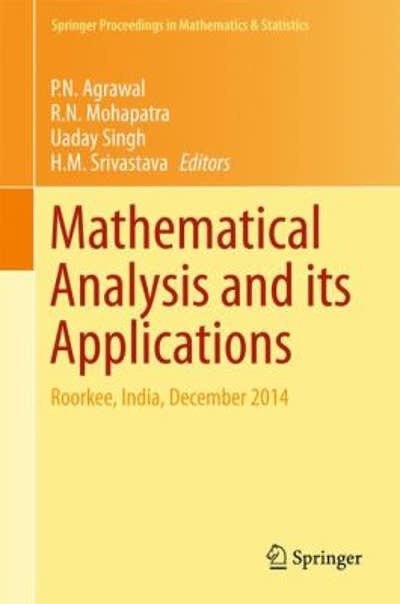Question
Suppose that an ordinary deck of 52 playing cards will be randomly ordered, and then the cards will be flipped over and observed, one after
Suppose that an ordinary deck of 52 playing cards will be randomly ordered, and then the cards will be flipped over and observed, one after another. LettingXbe the number of cards observedpriorto observing a black ace, give the value ofE(X). (Hint: Imagine labeling the 50 cards which are not black aces from 1 to 50, and letIjbe an indicator random variable which equals 1 if thejth card which is not a black ace is observed before either of the two black aces are observed, and equals 0 otherwise. Then expressXas a sum of such indicator random variables.)
Step by Step Solution
There are 3 Steps involved in it
Step: 1

Get Instant Access to Expert-Tailored Solutions
See step-by-step solutions with expert insights and AI powered tools for academic success
Step: 2

Step: 3

Ace Your Homework with AI
Get the answers you need in no time with our AI-driven, step-by-step assistance
Get Started


